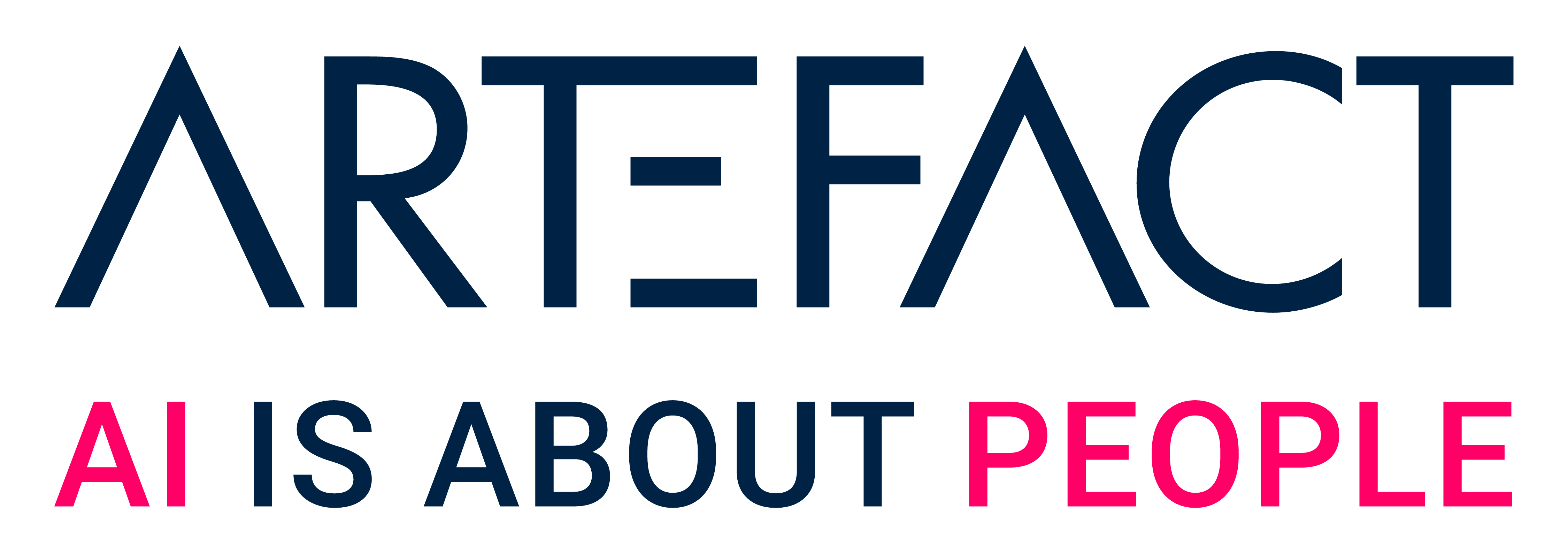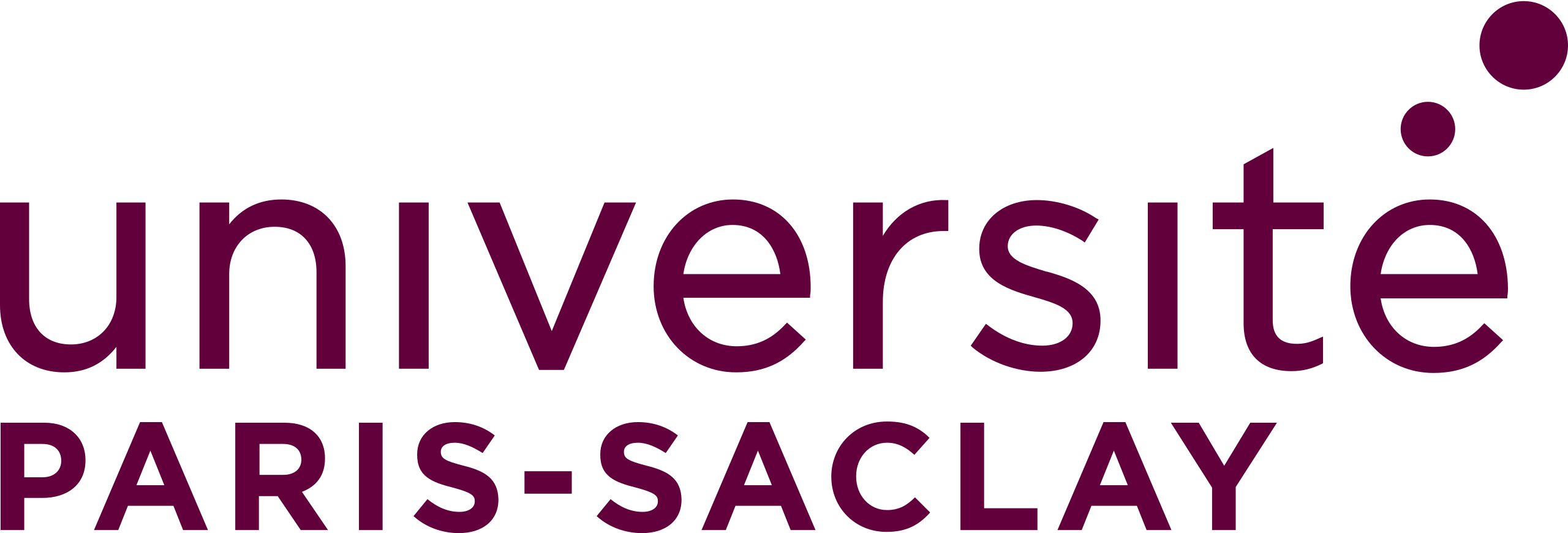https://github.com/artefactory/choice-learn
Discrete choice modeling in Python with large datasets & models - Assortment & Pricing Optimization .
https://github.com/artefactory/choice-learn
assortment choice choice-model choice-modeling conditional-logit-model deep discrete discrete-choice-models gurobi learning machine ml model neural-networks optimization or-tools pricing rum supermarket tensorflow
Last synced: 11 months ago
JSON representation
Discrete choice modeling in Python with large datasets & models - Assortment & Pricing Optimization .
- Host: GitHub
- URL: https://github.com/artefactory/choice-learn
- Owner: artefactory
- License: mit
- Created: 2023-12-18T13:09:29.000Z (about 2 years ago)
- Default Branch: main
- Last Pushed: 2025-03-28T16:33:10.000Z (11 months ago)
- Last Synced: 2025-03-30T00:05:34.001Z (11 months ago)
- Topics: assortment, choice, choice-model, choice-modeling, conditional-logit-model, deep, discrete, discrete-choice-models, gurobi, learning, machine, ml, model, neural-networks, optimization, or-tools, pricing, rum, supermarket, tensorflow
- Language: Python
- Homepage: https://artefactory.github.io/choice-learn
- Size: 21.5 MB
- Stars: 52
- Watchers: 2
- Forks: 7
- Open Issues: 21
-
Metadata Files:
- Readme: README.md
- Contributing: CONTRIBUTING.md
- License: LICENSE.md
- Citation: CITATION.bib
- Codeowners: .github/CODEOWNERS
Awesome Lists containing this project
README

*Large-scale choice modeling through the lens of machine learning*
[](https://github.com/artefactory/choice-learn/actions/workflows/ci.yaml?query=branch%3Amain)
[](https://github.com/astral-sh/ruff)
[](https://github.com/PyCQA/bandit)
[](https://github.com/artefactory/choice-learn/blob/main/.pre-commit-config.yaml)



[](https://doi.org/10.21105/joss.06899)
[](./CITATION.bib)
Choice-Learn is a Python package designed to help you formulate, estimate, and deploy discrete choice models, e.g., for assortment planning.
The package provides ready-to-use datasets and models studied in the academic literature. It also provides a lower level use if you wish to customize the specification of the choice model or formulate your own model from scratch. Choice-Learn efficiently handles large-scale choice data by limiting RAM usage.
Choice-Learn uses NumPy and pandas as data backend engines and TensorFlow for models.
## :trident: Table of Contents
- [Introduction - Discrete Choice modeling](#trident-introduction---discrete-choice-modeling)
- [What's in there ?](#trident-whats-in-there-)
- [Getting Started](#trident-getting-started)
- [Installation](#trident-installation)
- [Usage](#trident-usage)
- [Documentation](#trident-documentation)
- [Contributing](#trident-contributing)
- [Citation](#trident-citation)
- [References](#trident-references)
## :trident: Introduction - Discrete Choice modeling
Discrete choice models aim at explaining or predicting choices over a set of alternatives. Well known use-cases include analyzing people's choice of mean of transport or products purchases in stores.
If you are new to choice modeling, you can check this [resource](https://www.publichealth.columbia.edu/research/population-health-methods/discrete-choice-model-and-analysis). The different notebooks from the [Getting Started](#trident-getting-started) section can also help you understand choice modeling and more importantly help you for your usecase.
## :trident: What's in there ?
### Data
- The **ChoiceDataset** class can handle choice datasets with efficient memory management. It can be used on your own dataset. [[Example]](notebooks/introduction/2_data_handling.ipynb)
- Many academic datasets are integrated in the library and ready to be used:
| Dataset | Raw Data | Origin | *from choice_learn.datasets import* | Doc |
| ---------- | :----: | ------ | ------ | :---: |
| SwissMetro | [csv](./choice_learn/datasets/data/swissmetro.csv.gz) | Bierlaire et al. (2001) [[2]](#trident-references) | *load_swissmetro* | [#](https://artefactory.github.io/choice-learn/references/datasets/references_base/#choice_learn.datasets.base.load_swissmetro) |
| ModeCanada | [csv](./choice_learn/datasets/data/ModeCanada.csv.gz) | Forinash and Koppelman (1993) [[3]](#trident-references) | *load_modecanada* | [#](https://artefactory.github.io/choice-learn/references/datasets/references_base/#choice_learn.datasets.base.load_modecanada) |
| Train | [csv](./choice_learn/datasets/data/train_data.csv.gz) | Ben-Akiva et al. (1993) [[5]](#trident-references) |*load_train* | [#](https://artefactory.github.io/choice-learn/references/datasets/references_base/#choice_learn.datasets.base.load_train) |
| Heating | [csv](./choice_learn/datasets/data/heating_data.csv.gz) | Kenneth Train's [website](https://eml.berkeley.edu/~train/) | *load_heating* | [#](https://artefactory.github.io/choice-learn/references/datasets/references_base/#choice_learn.datasets.base.load_heating) |
| HC | [csv](./choice_learn/datasets/data/HC.csv.gz) | Kenneth Train's [website](https://eml.berkeley.edu/~train/) | *load_hc* | [#](https://artefactory.github.io/choice-learn/references/datasets/references_base/#choice_learn.datasets.base.load_hc) |
| Electricity | [csv](./choice_learn/datasets/data/electricity.csv.gz) | Kenneth Train's [website](https://eml.berkeley.edu/~train/) | *load_electricity* | [#](https://artefactory.github.io/choice-learn/references/datasets/references_base/#choice_learn.datasets.base.load_electricity) |
| Stated Car Preferences | [csv](./choice_learn/datasets/data/car.csv.gz) | McFadden and Train (2000) [[9]](#trident-references) | *load_car_preferences* | [#](https://artefactory.github.io/choice-learn/references/datasets/references_base/#choice_learn.datasets.base.load_car_preferences) |
| TaFeng Grocery Dataset | [csv](./choice_learn/datasets/data/ta_feng.csv.zip) | [Kaggle](https://www.kaggle.com/datasets/chiranjivdas09/ta-feng-grocery-dataset) | *load_tafeng* | [#](https://artefactory.github.io/choice-learn/references/datasets/references_tafeng/) |
| ICDM-2013 Expedia | [url](https://www.kaggle.com/c/expedia-personalized-sort) | Ben Hamner and Friedman (2013) [[6]](#trident-references) | *load_expedia* | [#](https://artefactory.github.io/choice-learn/references/datasets/references_expedia/) |
| London Passenger Mode Choice | [url]() | Hillel et al. (2018) [[11]](#trident-references) | *load_londonpassenger* | [#](https://artefactory.github.io/choice-learn/references/datasets/references_base/#choice_learn.datasets.base.load_londonpassenger) |
### Model estimation
- Different models are already implemented. You can import and parametrize the models for your own usage.
- Otherwise, **custom modeling** is made easy by subclassing the ChoiceModel class and specifying your own utility function. [[Example]](notebooks/introduction/4_model_customization.ipynb)
*List of implemented & ready-to-use models:*
| Model | Example | Colab | Related Paper | *from choice_learn.models import* | Doc |
| ---------- | -------- | -------- | ------ | ------ | :---: |
| MNL | [notebook](notebooks/models/simple_mnl.ipynb) | [](https://colab.research.google.com/github/artefactory/choice-learn/blob/main/notebooks/models/simple_mnl.ipynb) | | *SimpleMNL* | [#](https://artefactory.github.io/choice-learn/references/models/references_simple_mnl/) |
| Conditional Logit | [notebook](notebooks/introduction/3_model_clogit.ipynb) | [](https://colab.research.google.com/github/artefactory/choice-learn/blob/main/notebooks/introduction/3_model_clogit.ipynb) | Train et al. [[4]](#trident-references) | *ConditionalLogit* | [#](https://artefactory.github.io/choice-learn/references/models/references_clogit/) |
| Nested Logit | [notebook](notebooks/models/nested_logit.ipynb) | [](https://colab.research.google.com/github/artefactory/choice-learn/blob/main/notebooks/models/nested_logit.ipynb) | McFadden [[10]](#trident-references) | *NestedLogit* | [#](https://artefactory.github.io/choice-learn/references/models/references_nested_logit/) |
| Latent Class MNL | [notebook](notebooks/models/latent_class_model.ipynb) | [](https://colab.research.google.com/github/artefactory/choice-learn/blob/main/notebooks/models/latent_class_model.ipynb) | | *LatentClassConditionalLogit* | [#](https://artefactory.github.io/choice-learn/references/models/references_latent_class_mnl/) |
| Halo MNL | [notebook](notebooks/models/halo_mnl.ipynb) | [](https://colab.research.google.com/github/artefactory/choice-learn/blob/main/notebooks/models/halo_mnl.ipynb) | Maragheh et al. [[14]](#trident-references) | *HaloMNL* | [#](https://artefactory.github.io/choice-learn/references/models/halo_mnl/) |
| Low-Rank Halo MNL | [notebook](notebooks/models/halo_mnl.ipynb) | [](https://colab.research.google.com/github/artefactory/choice-learn/blob/main/notebooks/models/halo_mnl.ipynb) | Ko and Li [[15]](#trident-references) | *LowRankHaloMNL* | [#](https://artefactory.github.io/choice-learn/references/models/halo_mnl/) |
| NN-based Model | Example | Colab | Related Paper | *from choice_learn.models import* | Doc |
| ---------- | -------- | ------ | ---- | ------ | :---: |
| RUMnet| [notebook](notebooks/models/rumnet.ipynb) | [](https://colab.research.google.com/github/artefactory/choice-learn/blob/main/notebooks/models/rumnet.ipynb) | Aouad and Désir [[1]](#trident-references) | *RUMnet* | [#](https://artefactory.github.io/choice-learn/references/models/references_rumnet/#choice_learn.models.rumnet.PaperRUMnet) |
| TasteNet | [notebook](notebooks/models/tastenet.ipynb) | [](https://colab.research.google.com/github/artefactory/choice-learn/blob/main/notebooks/models/tastenet.ipynb) | Han et al. [[7]](#trident-references) | *TasteNet* | [#](https://artefactory.github.io/choice-learn/references/models/references_tastenet/) |
| Learning-MNL | [notebook](notebooks/models/learning_mnl.ipynb) | [](https://colab.research.google.com/github/artefactory/choice-learn/blob/main/notebooks/models/learning_mnl.ipynb) | Sifringer et al. [[13]](#trident-references) | *LearningMNL* | [#](https://artefactory.github.io/choice-learn/references/models/references_learning_mnl/) |
| ResLogit | [notebook](notebooks/models/reslogit.ipynb) | [](https://colab.research.google.com/github/artefactory/choice-learn/blob/main/notebooks/models/reslogit.ipynb) | Wong and Farooq [[12]](#trident-references) | *ResLogit* | [#](https://artefactory.github.io/choice-learn/references/models/references_reslogit/) |
| Basket Model | Example | Colab | Related Paper | *from choice_learn.basket_models import* | Doc |
| ---------- | -------- | ------ | ---- | ------ | :---: |
| SHOPPER| [notebook](notebooks/basket_models/shopper.ipynb) | [](https://colab.research.google.com/github/artefactory/choice-learn/blob/main/notebooks/basket_models/shopper.ipynb) | Ruiz et al. [[16]](#trident-references) | *Shopper* | [#](https://artefactory.github.io/choice-learn/references/basket_models/references_shopper/) |
### Auxiliary tools
Algorithms leveraging choice models are integrated within the library:
- Assortment & Pricing optimization algorithms [[Example]](notebooks/auxiliary_tools/assortment_example.ipynb) [[8]](#trident-references) [](https://colab.research.google.com/github/artefactory/choice-learn/blob/main/notebooks/auxiliary_tools/assortment_example.ipynb)
## :trident: Getting Started
You can find the following tutorials to help you getting started with the package:
- Generic and simple introduction [[notebook]](notebooks/introduction/1_introductive_example.ipynb)[[doc]](https://expert-dollop-1wemk8l.pages.github.io/notebooks/introduction/1_introductive_example/) [](https://colab.research.google.com/github/artefactory/choice-learn/blob/main/notebooks/introduction/1_introductive_example.ipynb)
- Detailed explanations of data handling depending on the data format [[noteboook]](notebooks/introduction/2_data_handling.ipynb)[[doc]](https://expert-dollop-1wemk8l.pages.github.io/notebooks/introduction/2_data_handling/) [](https://colab.research.google.com/github/artefactory/choice-learn/blob/main/notebooks/introduction/2_data_handling.ipynb)
- A detailed example of conditional logit estimation [[notebook]](notebooks/introduction/3_model_clogit.ipynb)[[doc]](https://expert-dollop-1wemk8l.pages.github.io/notebooks/introduction/3_model_clogit/) [](https://colab.research.google.com/github/artefactory/choice-learn/blob/main/notebooks/introduction/3_model_clogit.ipynb)
- Introduction to custom modeling and more complex parametrization [[notebook]](notebooks/introduction/4_model_customization.ipynb)[[doc]](https://expert-dollop-1wemk8l.pages.github.io/notebooks/introduction/4_model_customization/) [](https://colab.research.google.com/github/artefactory/choice-learn/blob/main/notebooks/introduction/4_model_customization.ipynb)
- All models and algorithms have a companion example in the notebook [directory](./notebooks/)
## :trident: Installation
### User installation
To install the required packages in a virtual environment, run the following command:
The easiest is to pip-install the package:
```bash
pip install choice-learn
```
Otherwise you can use the git repository to get the latest version:
```bash
git clone git@github.com:artefactory/choice-learn.git
```
### Dependencies
For manual installation, Choice-Learn requires the following:
- Python (>=3.9, <3.13)
- NumPy (>=1.24)
- pandas (>=1.5)
For modeling you need:
- TensorFlow (>=2.14, <2.17)
> :warning: **Warning:** If you are a MAC user with a M1 or M2 chip, importing TensorFlow might lead to Python crashing.
> In such case, use anaconda to install TensorFlow with `conda install -c apple tensorflow`.
An optional requirement used for coefficients analysis and L-BFGS optimization is:
- TensorFlow Probability (>=0.22)
Finally for pricing or assortment optimization, you need either Gurobi or OR-Tools:
- gurobipy (>=11.0)
- ortools (>=9.6)
> :bulb: **Tip:** You can use the poetry.lock or requirements-complete.txt files with poetry or pip to install a fully predetermined and working environment.
## :trident: Usage
Here is a short example of model parametrization to estimate a Conditional Logit on the ModeCanada dataset.
```python
from choice_learn.data import ChoiceDataset
from choice_learn.models import ConditionalLogit, RUMnet
from choice_learn.datasets import load_modecanada
transport_df = load_modecanada(as_frame=True)
# Instantiation of a ChoiceDataset from a pandas.DataFrame
dataset = ChoiceDataset.from_single_long_df(df=transport_df,
items_id_column="alt",
choices_id_column="case",
choices_column="choice",
shared_features_columns=["income"],
items_features_columns=["cost", "freq", "ovt", "ivt"],
choice_format="one_zero")
# Initialization of the model
model = ConditionalLogit()
# Creation of the different weights:
# add_coefficients adds one coefficient for each specified item_index
# intercept, and income are added for each item except the first one that needs to be zeroed
model.add_coefficients(feature_name="intercept",
items_indexes=[1, 2, 3])
model.add_coefficients(feature_name="income",
items_indexes=[1, 2, 3])
model.add_coefficients(feature_name="ivt",
items_indexes=[0, 1, 2, 3])
# add_shared_coefficient add one coefficient that is used for all items specified in the items_indexes:
# Here, cost, freq and ovt coefficients are shared between all items
model.add_shared_coefficient(feature_name="cost",
items_indexes=[0, 1, 2, 3])
model.add_shared_coefficient(feature_name="freq",
items_indexes=[0, 1, 2, 3])
model.add_shared_coefficient(feature_name="ovt",
items_indexes=[0, 1, 2, 3])
history = model.fit(dataset, get_report=True)
print("The average neg-loglikelihood is:", model.evaluate(dataset).numpy())
print(model.report)
```
## :trident: Documentation
A detailed documentation of this project is available [here](https://artefactory.github.io/choice-learn/).\
TensorFlow also has extensive [documentation](https://www.tensorflow.org/) that can help you.\
An academic paper has been published in the Journal of Open-Source Software, [here](https://joss.theoj.org/papers/10.21105/joss.06899).
## :trident: Contributing
You are welcome to contribute to the project ! You can help in various ways:
- raise issues
- resolve issues already opened
- develop new features
- provide additional examples of use
- fix typos, improve code quality
- develop new tests
We recommend to first open an [issue](https://github.com/artefactory/choice-learn/issues) to discuss your ideas. More details are given [here](./CONTRIBUTING.md).
## :trident: Citation
If you consider this package and any of its feature useful for your research, consider citing our [paper](https://joss.theoj.org/papers/10.21105/joss.06899).
```bash
@article{Auriau2024,
doi = {10.21105/joss.06899},
url = {https://doi.org/10.21105/joss.06899},
year = {2024},
publisher = {The Open Journal},
volume = {9},
number = {101},
pages = {6899},
author = {Vincent Auriau and Ali Aouad and Antoine Désir and Emmanuel Malherbe},
title = {Choice-Learn: Large-scale choice modeling for operational contexts through the lens of machine learning},
journal = {Journal of Open Source Software} }
```
### License
The use of this software is under the MIT license, with no limitation of usage, including for commercial applications.
### Affiliations
Choice-Learn has been developed through a collaboration between researchers at the Artefact Research Center and the laboratory MICS from CentraleSupélec, Université Paris Saclay.
## :trident: References
### Papers
[1][Representing Random Utility Choice Models with Neural Networks](https://arxiv.org/abs/2207.12877), Aouad, A.; Désir, A. (2022)\
[2][The Acceptance of Model Innovation: The Case of Swissmetro](https://www.researchgate.net/publication/37456549_The_acceptance_of_modal_innovation_The_case_of_Swissmetro), Bierlaire, M.; Axhausen, K., W.; Abay, G. (2001)\
[3][Applications and Interpretation of Nested Logit Models of Intercity Mode Choice](https://trid.trb.org/view/385097), Forinash, C., V.; Koppelman, F., S. (1993)\
[4][The Demand for Local Telephone Service: A Fully Discrete Model of Residential Calling Patterns and Service Choices](https://www.jstor.org/stable/2555538), Train K., E.; McFadden, D., L.; Moshe, B. (1987)\
[5] [Estimation of Travel Choice Models with Randomly Distributed Values of Time](https://ideas.repec.org/p/fth/lavaen/9303.html), Ben-Akiva, M.; Bolduc, D.; Bradley, M. (1993)\
[6] [Personalize Expedia Hotel Searches - ICDM 2013](https://www.kaggle.com/c/expedia-personalized-sort), Ben Hamner, A.; Friedman, D.; SSA_Expedia. (2013)\
[7] [A Neural-embedded Discrete Choice Model: Learning Taste Representation with Strengthened Interpretability](https://arxiv.org/abs/2002.00922), Han, Y.; Calara Oereuran F.; Ben-Akiva, M.; Zegras, C. (2020)\
[8] [A branch-and-cut algorithm for the latent-class logit assortment problem](https://www.sciencedirect.com/science/article/pii/S0166218X12001072), Méndez-Díaz, I.; Miranda-Bront, J. J.; Vulcano, G.; Zabala, P. (2014)\
[9] [Stated Preferences for Car Choice in Mixed MNL models for discrete response.](https://www.jstor.org/stable/2678603), McFadden, D. and Kenneth Train (2000)\
[10] [Modeling the Choice of Residential Location](https://onlinepubs.trb.org/Onlinepubs/trr/1978/673/673-012.pdf), McFadden, D. (1978)\
[11] [Recreating passenger mode choice-sets for transport simulation: A case study of London, UK](https://www.icevirtuallibrary.com/doi/10.1680/jsmic.17.00018), Hillel, T.; Elshafie, M. Z. E. B.; Jin, Y. (2018)\
[12] [ResLogit: A residual neural network logit model for data-driven choice modelling](https://doi.org/10.1016/j.trc.2021.103050), Wong, M.; Farooq, B. (2021)\
[13] [Enhancing Discrete Choice Models with Representation Learning](https://arxiv.org/abs/1812.09747), Sifringer, B.; Lurkin, V.; Alahi, A. (2018)\
[14] [A Customer Choice Model with HALO Effect](https://arxiv.org/abs/1805.01603), Maragheh, R., Y.; Chronopoulou, A.; Davis, J., M. (2018)\
[15] [Modeling Choice via Self-Attention](https://arxiv.org/abs/2311.07607), Ko, J.; Li, A., A. (2023)\
[16] [SHOPPER: A Probabilistic Model of Consumer Choice with Substitutes and Complements](https://arxiv.org/abs/1711.03560), Ruiz, F. J. R.; Athey, S.; Blei, D. M. (2019)
### Code and Repositories
*Official models implementations:*
[1] [RUMnet](https://github.com/antoinedesir/rumnet)\
[7] TasteNet [[Repo1](https://github.com/YafeiHan-MIT/TasteNet-MNL)] [[Repo2](https://github.com/deborahmit/TasteNet-MNL)]\
[12] [ResLogit](https://github.com/LiTrans/reslogit)\
[13] [Learning-MNL](https://github.com/BSifringer/EnhancedDCM)\
[16] [SHOPPER](https://github.com/franrruiz/shopper-src)











